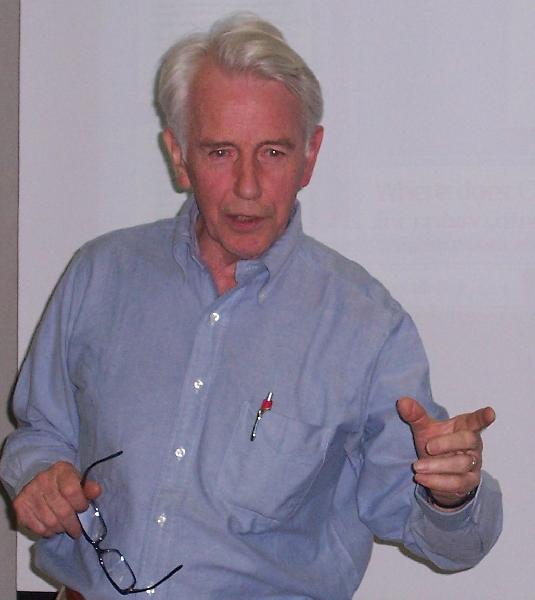
A central focus of China Week 2010 has been the Confucius Institute (CI) partnership between Rhodes University and Jinan University in China. A party from Jinan has been at Rhodes attending the lectures and seminars on offer, including the final presentation of the week by Dr Kenneth King, Emeritus Professor at the University of Edinburgh. Currently based in Hong Kong, Dr King made his first trip to Grahamstown to speak to a select but very responsive audience on Chinese Involvement in African Higher Education.
China rarely uses the term 'aid', preferring to refer to 'cooperation', or 'strategic partnership'. The Chinese do a lot of cross-sectoral Human Resources Development (HRD) cooperation with Africa: agriculture, health and education being among the areas in which collective work is taking place. Chinese companies, says Dr King, are training thousands of Africans across the continent, contrary to beliefs expressed in the media that no skills transfer is taking place. This form of 'aid' is different to that received from the more traditional donors such as Britain and America. Often referred to as South-South Cooperation, many of the so-called 'emerging donors', which include China, India and Brazil, have recently achieved transformation and economic boom in their own countries, and are able to pass on valuable experience.
Dr King spent some time exploring the character of this cooperation. China's African Policy (2006) does not use the word 'poor' or 'poverty'. It talks about learning from each other, and seeking common development. Backed by explicit principles of equality and mutual benefit, the spirit of the policy can be fittingly expressed by Premier Zhou Enlai's description of “poor friends in the same boat pulling oars together.” An example quoted by Dr King is the TAZARA project in the 1970s, where a then economically struggling China built the Tanzania-Zambia Railway. Looking back over fifty or so years, a consistency in the Chinese discourse on cooperation can be observed. The elements of political equality and mutual trust, talk of economic win-win cooperation, and cultural exchanges have always been present.
Moving on from the more general discussion of cross-sectoral cooperation, Dr King began to explore in more detail the involvement China has in education on the African continent. Looking at the emphasis placed on mutuality, it is not surprising, he says, to find that partnership is one of the principal modalities or instruments for the delivery of education cooperation. Among the partnerships undertaken are high level educational exchanges; undergraduate student exchanges; cooperative educational programmes; professional seminars and workshops in China; active involvement of Chinese teachers in teaching work in African countries; Chinese language teaching and research in Africa; and, not least, the building of African knowledge within China itself.
Drawing this together is the Forum on China-Africa Cooperation (FOCAC), an almost unique Pan-African mechanism for relating to the whole of Africa, inaugurated in 2000. Declarations are made jointly, reinforcing the idea of mutuality. FOCAC HRD targets for Africa for the time period 2010 to 2012 include the short-term training of 20 000 African professionals in China, 5 500 long-term scholarships to Africans, and scholarships for African teachers of Chinese. In addition to these targets, 20 Chinese universities are in partnership with South African universities, eleven of which have Confucious Institutes. As Dr King says, “Partnership is very much the name of how China is doing Higher Education Cooperation.”
